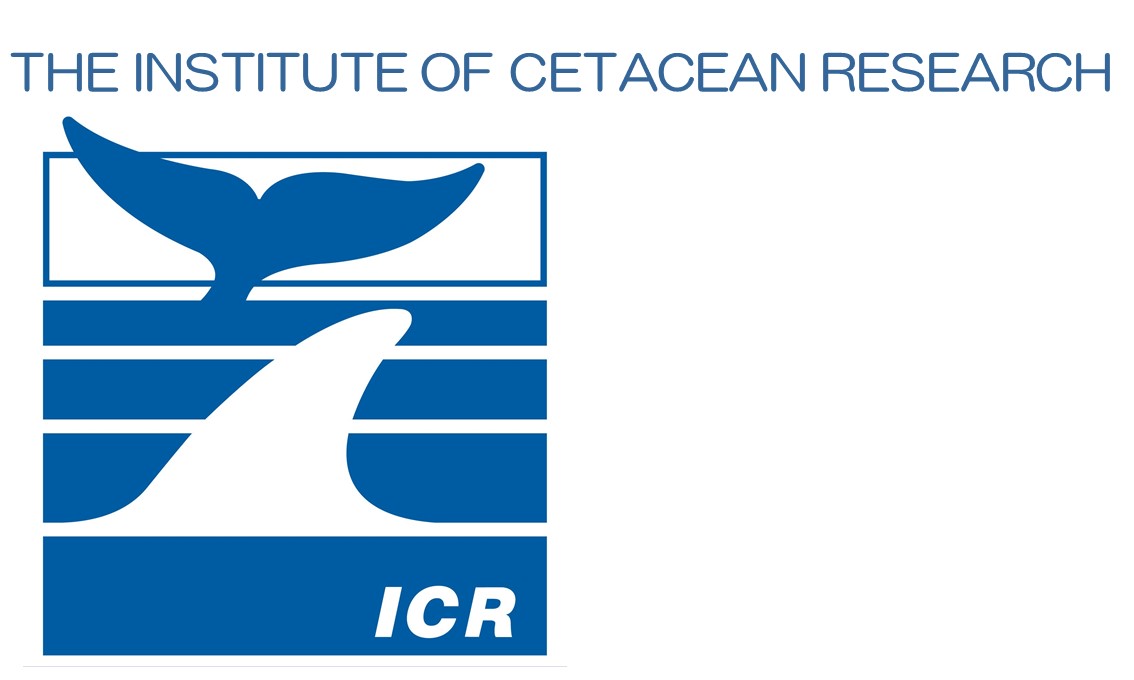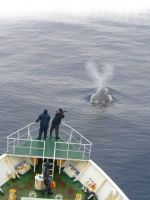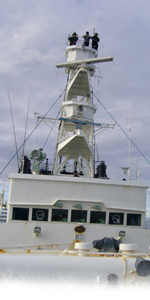2021/2022 Japanese Abundance and Stock-structure Surveys in the Antarctic (JASS-A)
- Departure of Research Vessel
December 3, 2021
Designated Corporation for Scientific Whale Research
THE INSTITUTE OF CETACEAN RESEARCH
1. Background
This survey is the continuation of the Japanese government's research program (non-lethal research) aimed at sustainable use of whale resources in the Antarctic Ocean, and the third research cruise in the Antarctic after Japan's withdrawal from the International Whaling Commission (IWC) on June 30, 2019. The scientific validity and the value of this research have been confirmed by the IWC Scientific Committee. The scientific information obtained from the research are provided to the IWC Scientific Committee, the Ecosystem Monitoring and Management Working Group of the Commission for the Conservation of Atlantic Marine Living Resources (CCAMLR) and the Scientific Committee of the North Atlantic Marine Mammal Commission (NAMMCO), and thus contribute to the appropriate management of whale resources in the Antarctic Ocean. In this year's research, we will continue to conduct sighting surveys, mounting satellite tags and collecting biopsy samples of cetaceans in the Antarctic Ocean.
The research vessel Yushin-Maru No. 2 is departing from the Shiogama Port, Miyagi Prefecture, on December 3, 2021 and scheduled to return to the same port on March 21, 2022 after conducting non-lethal research in the Antarctic Ocean.
2. Outline of the 2021/2022 Research Cruise
This survey is financially supported by the Fisheries Agency, and the Institute takes the lead in planning, implementing and conducting analyses of data obtained from the survey.
2.1 Main research objectives
(1) Study of abundance and their trends of large whale species in the Antarctic Ocean.
(2) Study of the distribution, movement and stock structure of large whale species in the Antarctic Ocean.
2.2 Research Cruise Period
From December 3, 2021 to March 21, 2022 (109 days).
2.3 Research Area
Antarctic Ocean.
2.4 Researchers
Three researchers led by Tatsuya Isoda (Cruise Leader, Institute of Cetacean Research).
2.5 Research Vessel
Sighting survey
Yushin-Maru No. 2, (747 tons, owned by Kyodo Senpaku, Ltd., Captain Hidenori Kasai, 16 crews in total). Nineteen members led by the Cruise Leader Isoda and the Captain Kasai will be on board to engage in the research.
2.6 Implementing body
Designated Corporation for Scientific Whale Research - The Institute of Cetacean Research.
2021/2022 Japanese Abundance and Stock-structure Surveys in the Antarctic (JASS-A) - Departure of Research Vessel (PDF file)




